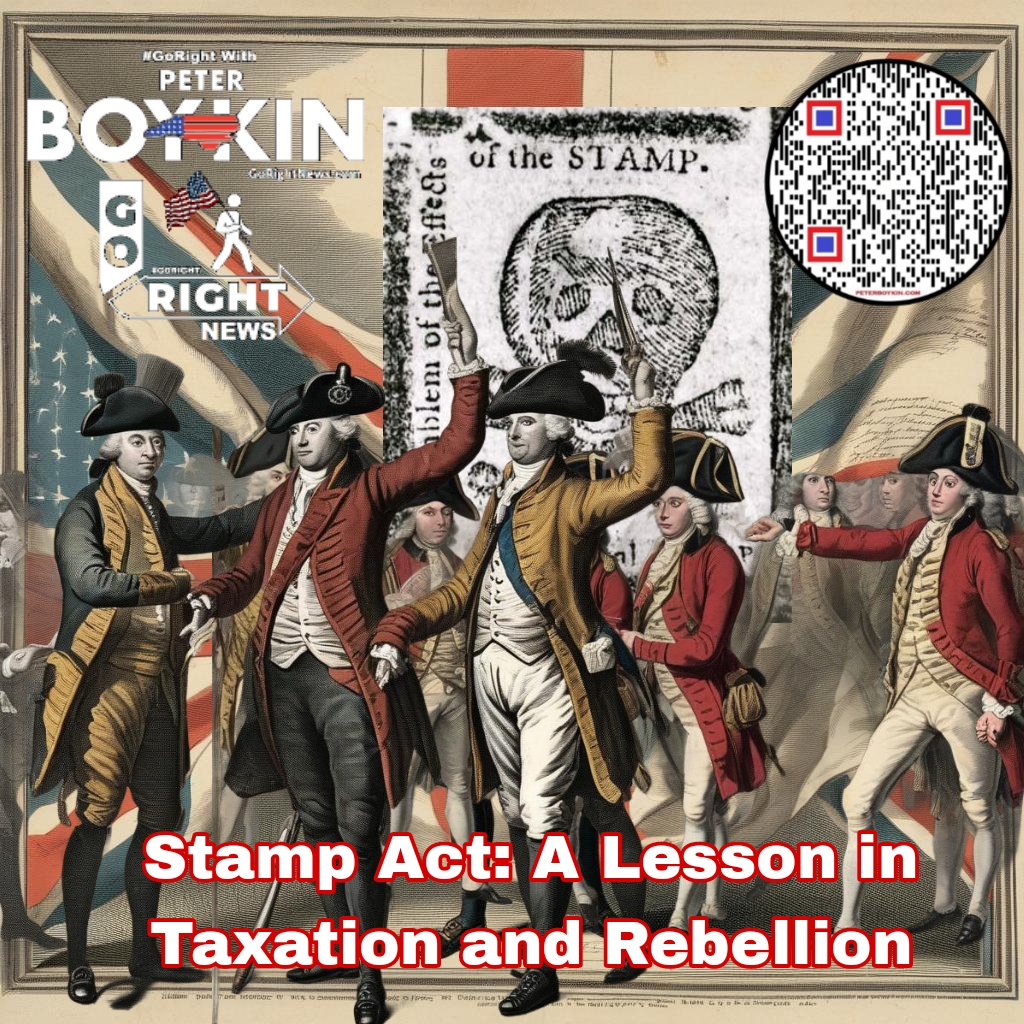Stamp Act:
A Lesson in Taxation and Rebellion
Shared By Peter Boykin – American Political Commentator / Citizen Journalist / Political Candidate

⏰ No taxation without representation
Stamp Act: A Lesson in Taxation and Rebellion
In 1765, the British Parliament enacted the infamous Stamp Act, imposing taxes on a wide array of printed materials across the American colonies, ranging from newspapers to legal documents and even playing cards. While short-lived, this draconian measure sparked widespread outrage and catalyzed a unified resistance movement that ultimately paved the way for the Revolutionary War.
The Act’s Fallout:
Despite its swift repeal in 1766 following vehement protests, the Stamp Act left an indelible mark on American history. It served as a rallying cry for colonial unity, galvanizing individuals from diverse backgrounds in their shared opposition to unjust taxation and oppressive British rule.
Seeds of Rebellion:
The slogan “No taxation without representation,” emblematic of the colonists’ fervent resistance to arbitrary taxation, finds its roots in the tumultuous aftermath of the Stamp Act. This rallying cry encapsulated the colonists’ steadfast belief in their inherent rights and their refusal to acquiesce to tyranny.
Drawing Parallels:
The legacy of the Stamp Act resonates even in contemporary debates surrounding fiscal policy and governmental spending. As our elected officials engage in deliberations over the allocation of taxpayer dollars, the lessons of history serve as a sobering reminder of the perils of unchecked governmental authority and the enduring importance of safeguarding individual liberties.
Republican Perspective:
For proponents of limited government and fiscal responsibility, the story of the Stamp Act underscores the dangers of excessive taxation and governmental overreach. It serves as a cautionary tale against the encroachment of bureaucratic power and underscores the enduring need for vigilant oversight and accountability in governance.
As we reflect on the legacy of the Stamp Act and its profound implications for American democracy, let us remain vigilant in safeguarding the principles of liberty, representation, and fiscal prudence that lie at the heart of our nation’s founding. In an age marked by political polarization and partisan discord, may we draw inspiration from the resilience of our forebears and reaffirm our commitment to a government of, by, and for the people.
This Article is Brought to you by Go Right News and Edited by Peter Boykin
Visit GoRightNews.com for More Articles and Visit PeterBoykin.com to Learn more about Peter Boykin





